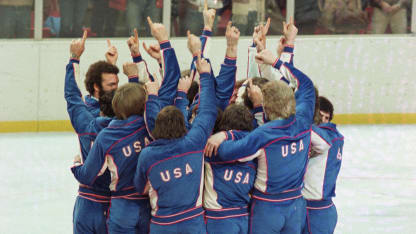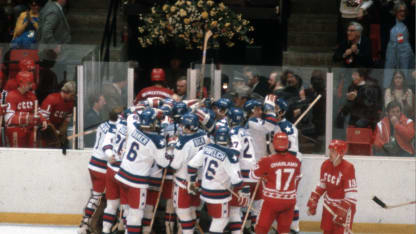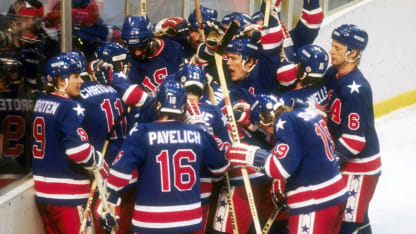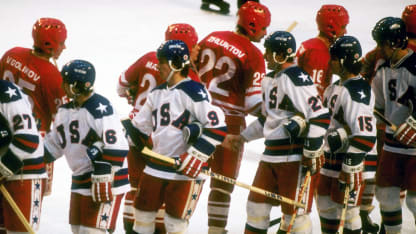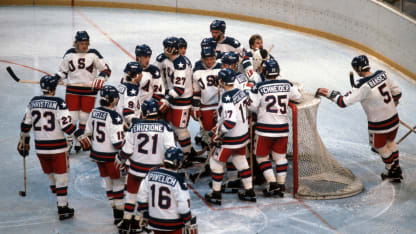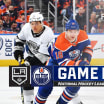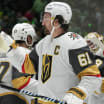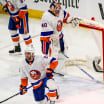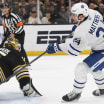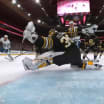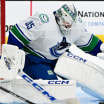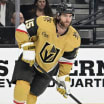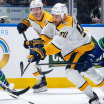Bill Baker, D
The hero of the tournament-opening 2-2 tie with Sweden (his late goal gave the U.S. a point), was a third-round selection (No. 54) by the Montreal Canadiens in the 1976 draft. He played 11 games for the Canadiens in 1980-81 before being traded to the Colorado Rockies. Colorado traded him to St. Louis in 1981-82, and he scored his first three NHL goals with the Blues. Baker played 70 of his 143 NHL games for the New York Rangers in 1982-83, but after one more season in the minors, he left hockey to become an oral surgeon.
Steve Christoff, C
The Minnesota native was an instant hit with the hometown North Stars after Lake Placid, finishing with 15 points (eight goals, seven assists) in 20 regular-season games. He scored 26 goals in each of the next two seasons and had 16 points (eight goals, eight assists) to help the North Stars advance to the 1981 Stanley Cup Final (a five-game loss to Morrow and the Islanders). Though Christoff was popular in Minnesota, the North Stars traded him to the Calgary Flames on June 7, 1982. He played one season with the Flames and one with the Kings before retiring, having scored 77 goals in 248 games.
Rob McClanahan, C
McClanahan never showed the kind of offensive skills in the NHL that he'd demonstrated with the U.S. national and Olympic teams. He joined the Sabres after the Olympics but saw action in more than 53 games in an NHL season just once; in 1982-83, playing for Brooks with the Rangers, McClanahan had 48 points (22 goals, 26 assists) in 78 games. He split the 1983-84 season between the Rangers and Tulsa of the Central Hockey League before retiring after scoring 101 points (38 goals, 63 assists) in 224 NHL games.
Jack O'Callahan, D
An injury limited O'Callahan, who had starred at Boston University, to four games at Lake Placid. After two seasons in the American Hockey League, O'Callahan joined the Blackhawks, who had taken him in the sixth round (No. 96) in the 1977 draft. O'Callahan played five seasons with Chicago and two with the New Jersey before retiring in 1989 after playing 389 NHL games.
Mark Pavelich, C
No NHL team had drafted Pavelich, so after helping the U.S. win gold at Lake Placid, he spent the 1980-81 season playing in Switzerland. The Rangers, now coached by Brooks, signed him for the 1981-82 season, and he was an immediate hit; Pavelich scored 33, 37 and 29 goals in his first three seasons, and became the first U.S. player to score five goals in a game on Feb. 23, 1983. He played six seasons with the Rangers and one with the North Stars, and then played three seasons in Europe before finishing his career by playing two games with the San Jose Sharks in 1991-92. Pavelich had 329 points (137 goals, 192 assists) in 355 NHL games.
Dave Silk, F
The Rangers had drafted Silk in the fourth round (No. 59) in 1978, and he signed with New York on March 3, 1980. The Boston native spent three seasons with the Rangers organization before he was traded to the Bruins on Oct. 5, 1983. He also played with Detroit and Winnipeg before finishing his career by playing in Germany for five seasons, retiring in 1991. Silk had 113 points (54 goals, 59 assists) in 249 NHL games.
